OPERA
Cape Town Opera delivers Puccini’s comedy and tragedy in a powerful double-bill
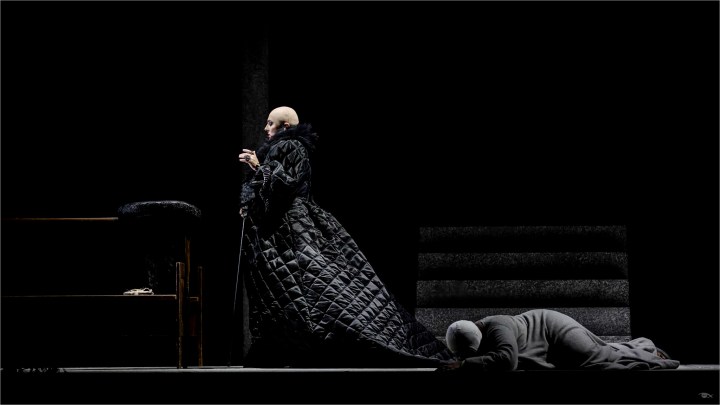
Death pervades both of the one-act operas in Cape Town Opera’s three-night run of a Puccini double bill that includes laugh-out-loud comedy and heart-shattering tragedy.
‘Senza mamma” is among Giacomo Puccini’s most touching arias and yet Suor Angelica, the opera in which it features, isn’t typically mentioned among the Italian composer’s best-known works. That may be because Puccini’s legacy includes Tosca, Madama Butterfly and La bohème, all up there among opera’s most beloved titles.
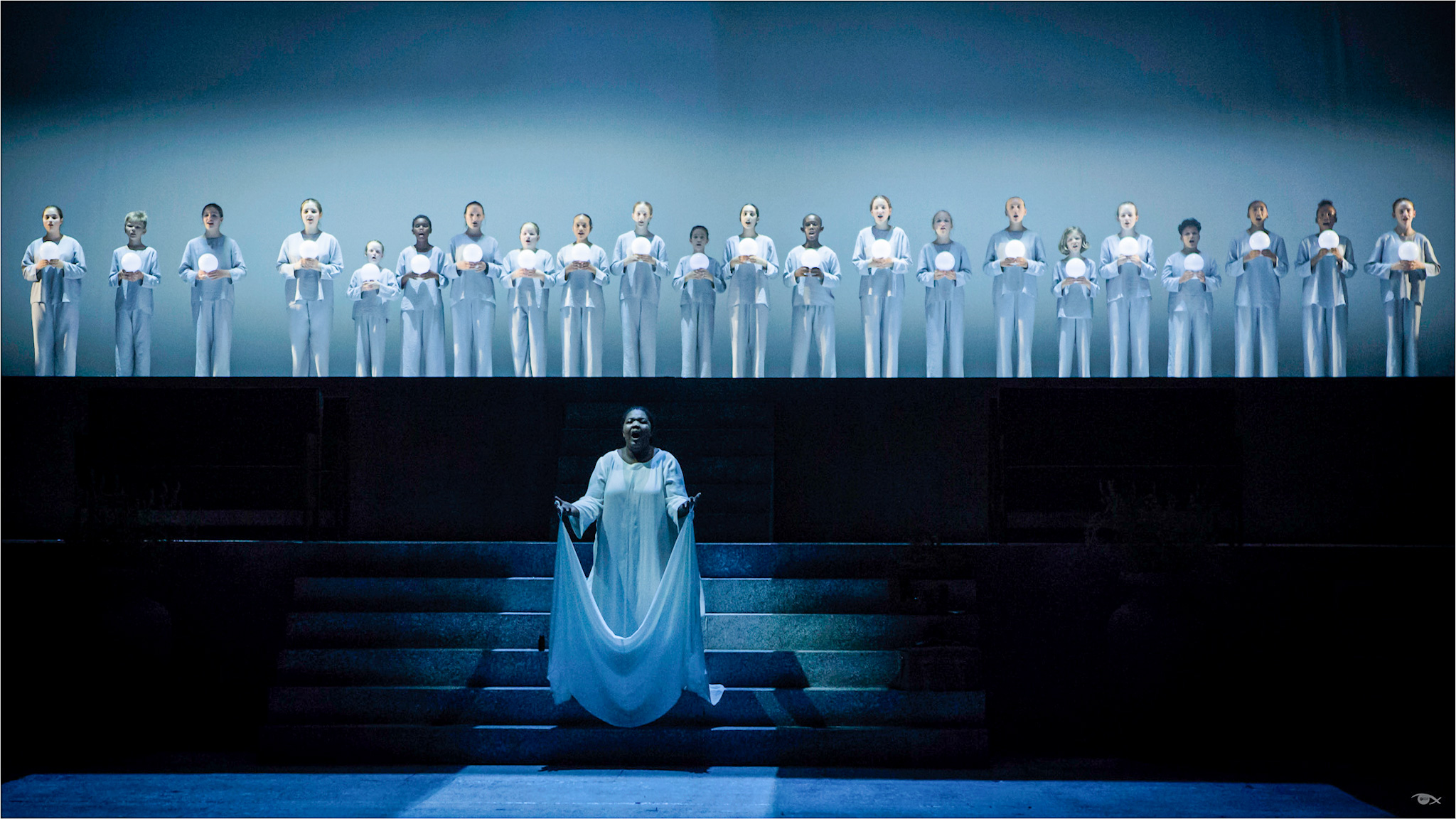
Nobulumko Mngxekeza as Sister Angelica — with the Cape Town Opera Children’s Chorus in ‘Suor Angelica’ at Artscape as part of a Puccini double bill. (Photo: Danie Coetzee)
Suor Angelica is noteworthy as the only Puccini opera written exclusively for female voices; like most of his work, it utilises music to express the deep realism of fundamental emotions. He was interested in driving the audience to tears by getting to the raw core of the characters and expressing their emotional truth through music and voice.
“Senza mamma” gets us there, and then some.
The entire one-act opera is a bit of an emotional roller-coaster, to be honest. Don’t be fooled by the joyful tone and light timbre of the opening scenes – he’s winding you up before punching you in the gut.
Suor Angelica is, along with the farcical comedy Gianna Schicchi and the dark drama Il Tabarro, part of Puccini’s “Triptych”, a trio of one-act operas each exploring a distinct social dynamic and each executed in a different emotional register.
Taking aim at 17th-century Florentine aristocracy, Suor Angelica is ostensibly about a nun who claims she misses nothing about the secular world beyond the nunnery where she resides. What unfolds, however, is the revelation of her hectic, scandalous backstory that spills out along with brutal news that leads to tragedy.
In his quest to turn his audiences’ guts inside out, Puccini evidently had no qualms about putting his protagonist through the wringer.
It all starts with such deceptive innocence. Nuns going about their daily duties, a pair of them being scolded for – oh dear! – missing evening prayers. Within this chorus of cheerful, frolicking women who are devoted to the Virgin, and who sing about the golden sunlight, the arrival of spring, and the deliciousness of just-harvested grapes, Angelica sings somewhat forebodingly about death being the loveliest time of life.
Clearly, something’s up with Sister Angelica.
Then, out of the blue, her spooky aunt, an elderly princess dressed in a piece of voluminous all-black couture, turns up at the convent. While Angelica, wearing just her simple robes, hopes to hear some news of her family, it instead turns into an emotional bloodbath.
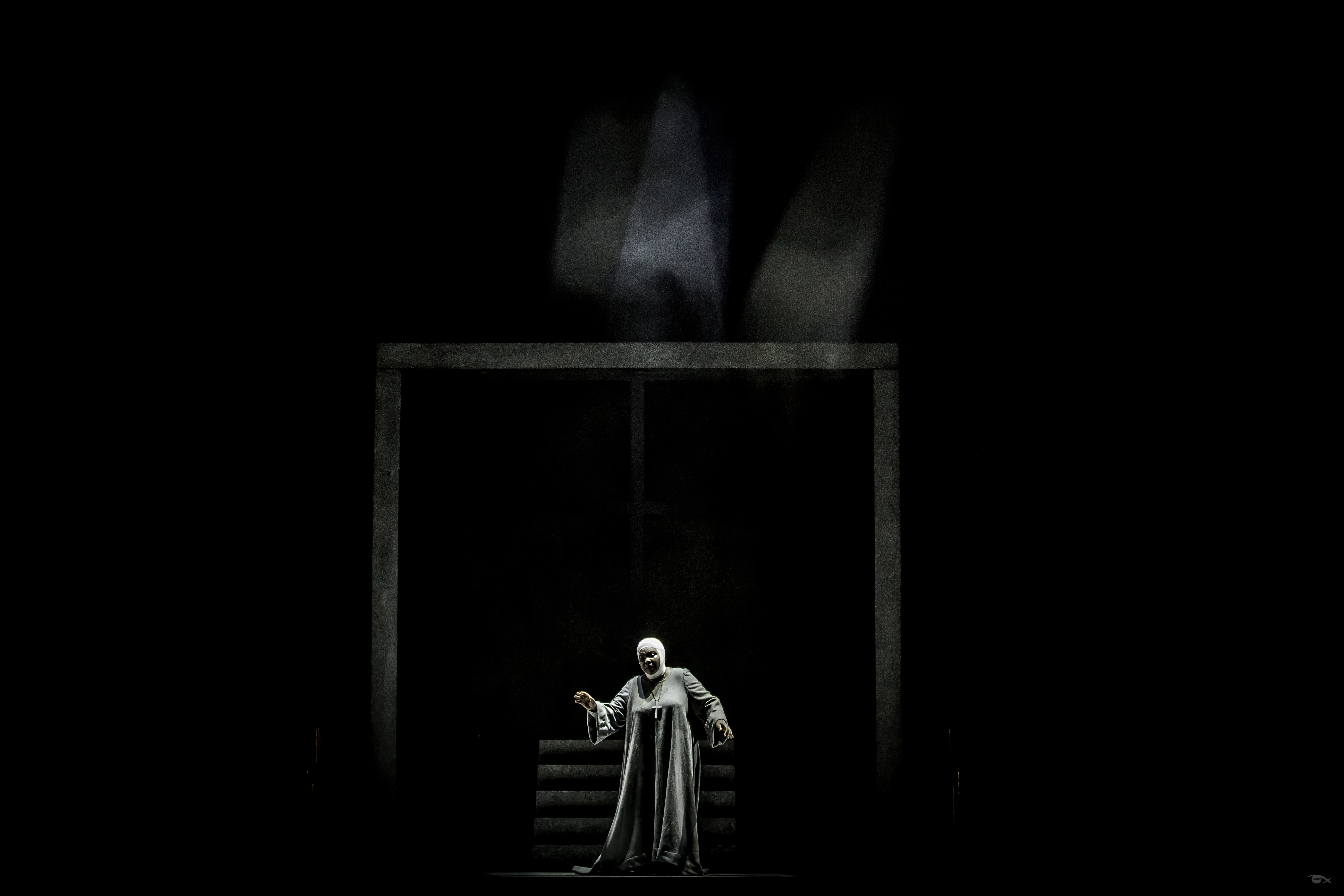
Nobulumko Mngxekeza as Sister Angelica in Puccini’s one-act opera ‘Suor Angelica’. (Photo: Danie Coetzee)
Her aunt, played by guest artist Minette du Toit-Pearce, is a strong contender for the villain of the year: a cold, heartless, upper-crust aristocrat who simply wants Angelica to sign a document relinquishing her inheritance.
The harshness of their sung dialogue rips through the almost diaphanous score, bringing an end to the frothy, sentimental tone of the preceding scenes.
And when Angelica asks for news of her illegitimate son – the boy she has not seen since he was born seven years ago and only once managed to kiss before she was relegated to the convent – her aunt casually announces that he’s already dead.
If ever there’s a reason to watch opera, it’s to hear the likes of Nobulumko Mngxekeza singing the part of Sister Angelica in the aftermath of hearing that tragic news.
“Senza mamma”, the aria which reveals her desperate heartache, is sublime and transcendent, and Mngxekeza, who last year played Tosca in Cape Town Opera’s acclaimed production, lets the audience feel the depths of her despair.
Puccini’s trick, perhaps, is the way he scoops the metaphorically broken Angelica off the ground, how he deals with the aftermath of this terrible disquiet and returns the audience to a more elevated emotional state.
For Angelica, death is the only cure for the heartache she feels.
For Puccini, the music becomes a means of almost magically turning the tragedy into something beautiful and sublime, to raise spirits again as Angelica poisons herself and ascends to the heavenly realm.
In a twist on Puccini’s ending, which sees Angelica being reunited with her son in heaven, director Magdalene Minnaar has instead fashioned a visually striking finale that rather exuberantly enables her to bring on stage the recently established Cape Town Opera Children’s Chorus.
Instead of meeting just her son in the afterlife, Angelica ascends the steps to heaven and finds herself among a chorus of what might be interpreted as heavenly angels, or perhaps the souls of multiple children taken too young.
It works as a grand visual coda, briefly transporting the audience from earth-bound tragedy to a kind of enigmatic, soaring, ethereal realm accompanied by music that’s reassuringly sentimental and uplifting – even hopeful.
The second half of this Puccini double-bill also has death at its centre, but it is, emotionally, the very antithesis of Suor Angelica.
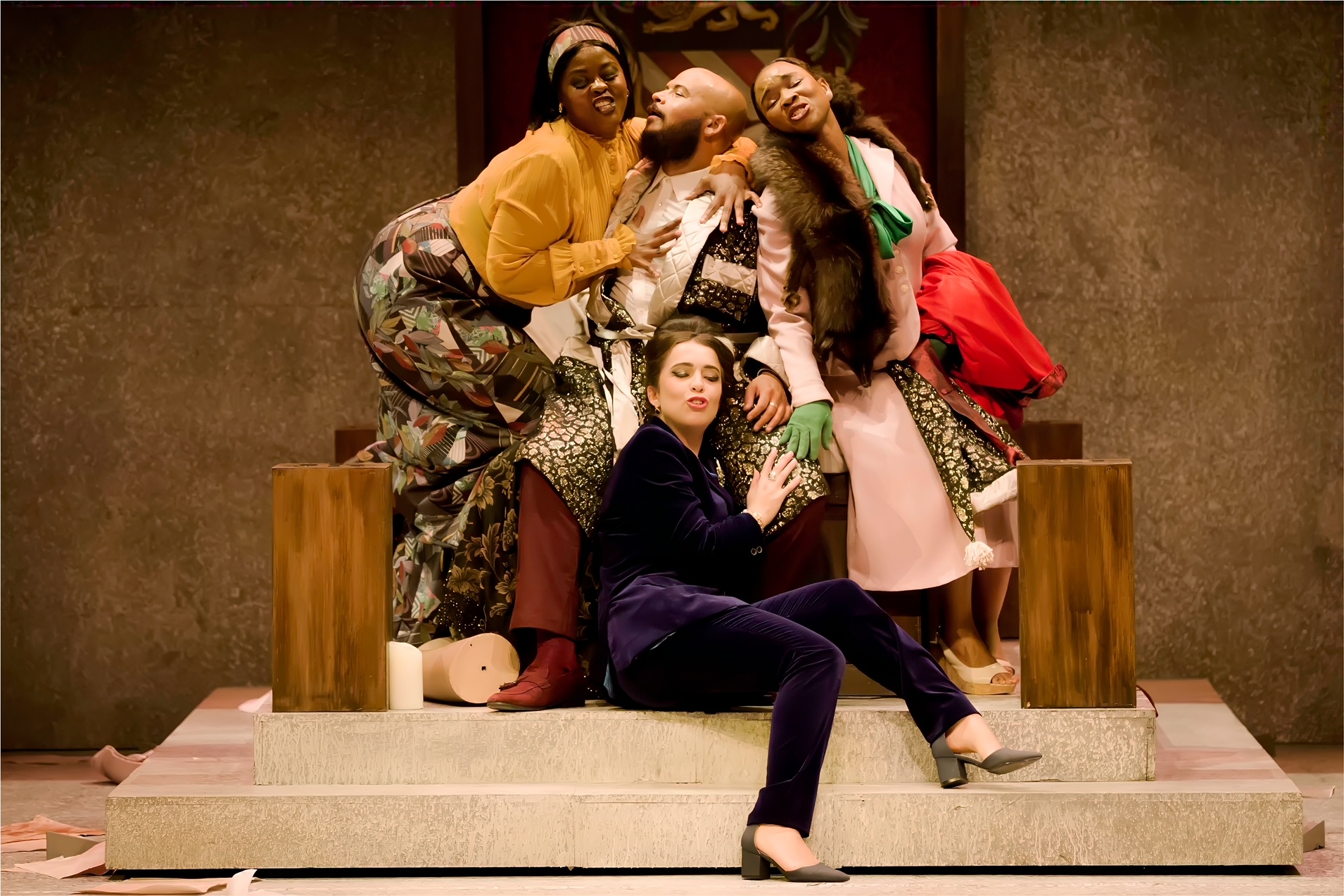
Conroy Scott with Asisipho Petu_ Busisiswe Ngejane and Julia Piñón Portela in Puccinis one-act opera, ‘Gianni Schicchi’, at Artscape. (Photo: Danie Coetzee)
Conjuring the verging-on-slapstick atmosphere of Italian commedia dell’arte, Gianni Schicchi features a cast of characters whose inability to reign in their baser instincts is used to tremendous comic effect.
It is laugh-out-loud funny, almost hysterical in places, and even gets a bit messy as these money-grubbers scheme to get their hands on the wealth left behind by their deceased relative.
The fact that the just-departed Buoso Donati is on stage for most of the opera only heightens the comedy, its morbid humour greatly amplified when his corpse is unceremoniously carried across the room and leaned against a wall behind a bench, like a piece of furniture or a prop.
Donati’s death, rather than causing his family to mourn his passing, brings out their worst. First, they feign sorrow, strutting and swanning about and even tripping across the stage like sneaky, suspicious cartoon characters. But soon, as their collective greed takes hold, they scavenge through his bedroom to find his will, and then, once they read it and find themselves disappointed by its contents, scheme instead to posthumously alter the expired man’s wishes.
They summon the titular Gianni Schicchi and go with his scheme to create a counterfeit will.
Schicchi’s ingenious plan is to lie in Donati’s bed and pretend to be the old man in his final hours. A notary will be summoned and together they will re-write Donati’s final testament under a veneer of legitimacy.
Of course, as the dumb and greedy often discover in comedies such as these, Donati’s relatives do not reckon with Schicchi’s own self-interests, nor his capacity to mastermind a great swindle.
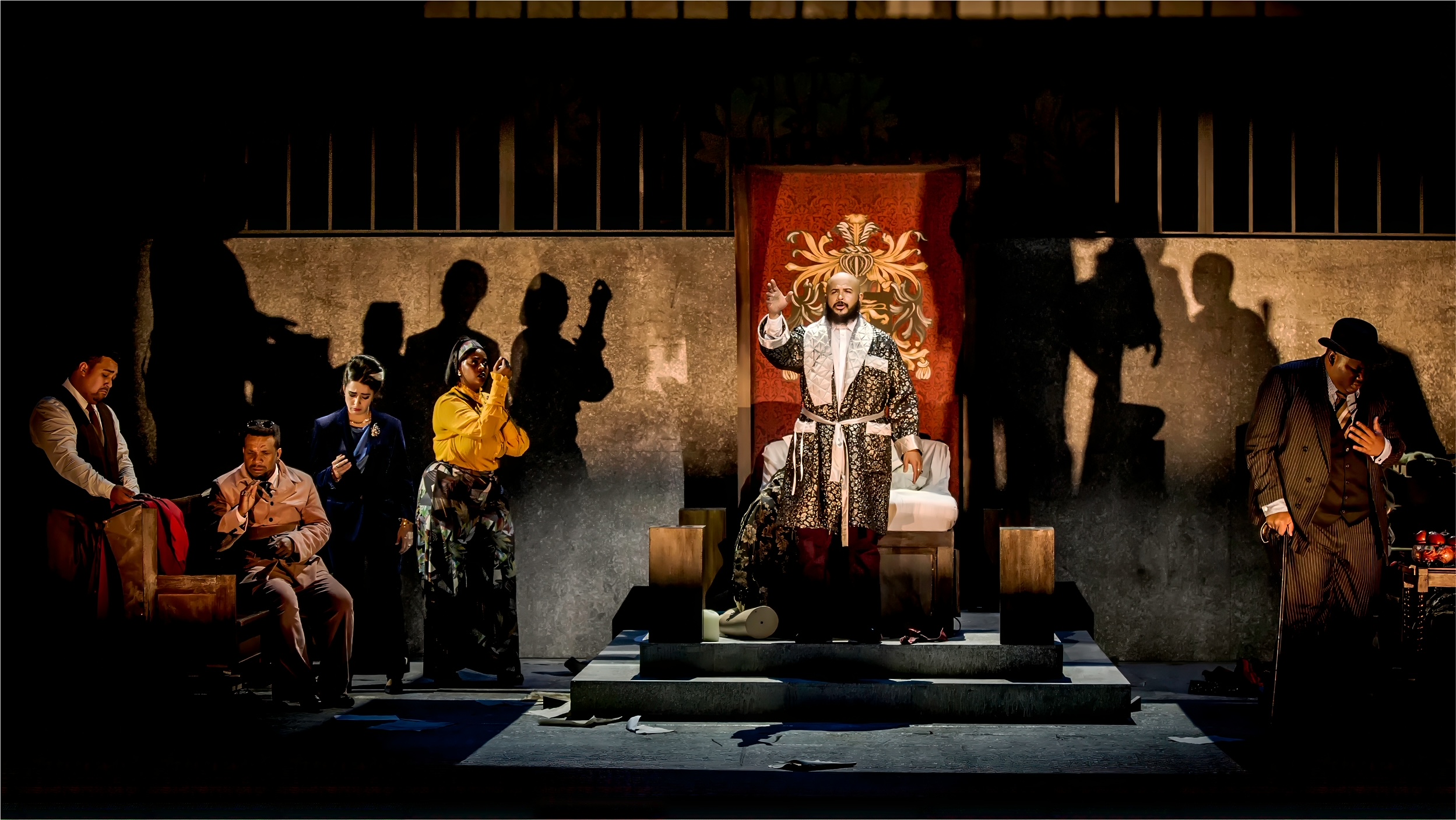
Conroy Scott as the titular Gianni Schicchi in Puccini’s comedy opera ‘Gianni Schicchi’. (Photo: Danie Coetzee)
The story, it must be said, is derived from Dante’s Inferno, wherein an actual Florentine named Gianni Schicchi is consigned to the eighth circle of hell along with the other forgers and cheats; in Puccini’s version, though, you can’t help but admire him for the crafty way in which he beats Donati’s relatives at their own game.
Sung by Conroy Scott – an enormously deft vocalist and an equally adept character actor – Schicchi is also a captivating crook. He enters with a subtle swagger, fantastically kitted out all in red, and thoroughly commands the stage.
Just when you think he’s one type of barrel-chested conman, he pinches his voice, pretends to be Donati and sings in a comic approximation of a bedridden old man’s false register.
The entire cast brings their A-game, leaning into their caricatures to pull off what is ultimately non-stop comedy; it is good to see an opera ensemble having such a blast on stage – their unhinged performances translate into an hour of topsy-turvy fun for the audience.
And while both the situation and the execution are in the realm of farce, it’s a testament to Minnaar’s feel for comedy that, in the opera’s final moments, when the dead man’s relatives loot his bedchamber, they not only carry off his valuables but even pilfer his mattress. DM
Cape Town Opera’s Puccini double-bill comprises the one-act operas Suor Angelica and Gianni Schicchi, accompanied by the Cape Town Philharmonic Orchestra conducted by Jeremy Silver. It runs at the Artscape Opera House from 14 to 17 February. Tickets are via Webtickets.




















 Become an Insider
Become an Insider
Comments - Please login in order to comment.